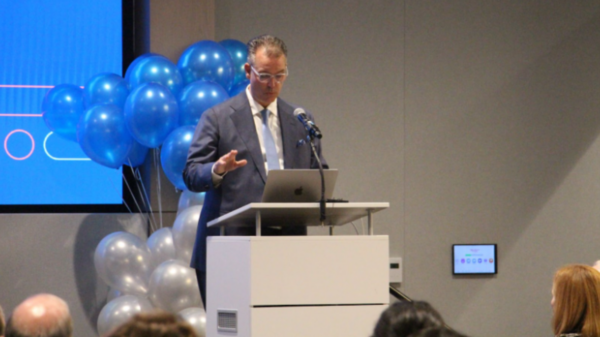BY RAYNA REID RAYFORD
Community colleges are oftentimes a crucial point of access to postsecondary education for Black students. And the data backs this assertion—according to the Joint Center for Political and Economic Studies, “Community colleges award Black students certificates at higher rates than other groups.”
However a 2023 report revealed troubling statistics, “In 2020, the U.S. enrolled the same number of Black students in community colleges that it did back in 2000.” This could “threaten decades of gains in Black economic opportunity through college enrollment.”
But Dr. Daria J. Willis, the fifth president of Howard Community College (HCC), is deeply committed to ensuring positive academic and career outcomes for her students.
HCC is a public community college located in Columbia, Maryland. Although similarly named and geographically close to Washington, D.C.’s HBCU, Howard University, the two schools are not affiliated.
With 67% of the student body comprised of non-white students, including a 32% Black population, HCC is a majority-minority school. The Handbook of Research on Solutions for Equity and Social Justice in Education defines this as a “school where students of color compose a greater percentage than white students.”
Willis sat down with ESSENCE to discuss her career path, what she hopes to accomplish during her tenure at HCC, and the importance of community colleges.
A first-generation college student in her family, Willis shared that she became a student parent during her first year at Florida A&M University (FAMU) in Tallahassee, FL. “I struggled, I had a lot of obstacles, but I got myself back together and graduated magna cum laude.” Willis subsequently received her Master’s degree from FAMU and then her Ph.D. from Florida State University.
Willis got her start in academia at Lone Star College in Houston, TX, which “is one of the largest community college systems in the state of Texas. From there, I moved up really quickly in administration. Within five or six years, I had become provost at Onondaga Community College in Syracuse, New York. From there, I became president at Everett Community College in Washington State. Then in 2021 received a call from this place called Howard Community College in Columbia, Maryland.”
“I have been here for two years. I’m the first African American to be the president here. I was also the first at Everett Community College,” Willis proudly stated. “I’m always preaching to people, that if you give us a chance, then students like me will ascend to these positions as well.”
In discussing the importance of community colleges, Willis was emphatic. “We’re [community colleges are] going to be the reason why people get back to work in this country. I kind of see us as very similar to the mission and vision and values of HBCUs.”
“But when you get down to the core of why we’re here, we educate over half of the student population within the country,” says Willis. “That is phenomenal, and then when you look at how many of our students transfer to a four-year institution, to an HBCU, to Hispanic serving institutions, they are taking the good majority of our students.”
“Besides the transfer track, you also have apprenticeships and workforce opportunities, the quick skills that people need to get back to work,” added Willis.
In fact, Willis revealed, “we are changing our entire curriculum structure at HCC. We’re calling it accelerated pathways to success.” Students will be able to take less classes within shorter terms, so they can graduate faster after a data analysis revealed that length of term time was causing students to drop classes. “We’re launching this officially in the fall of 2024. At HCC, we are moving at the speed of change,” Willis noted.
“You can’t get that at a four year or at a private institution. That is our bread and butter at community colleges, so I think we need to be shining a light on what community colleges are doing. We are not second-class citizens. We are not less than—we are greater than or equal to,” Willis continued. “Community colleges are the true anti-poverty and racial equity lens for higher education.”

You must be logged in to post a comment Login